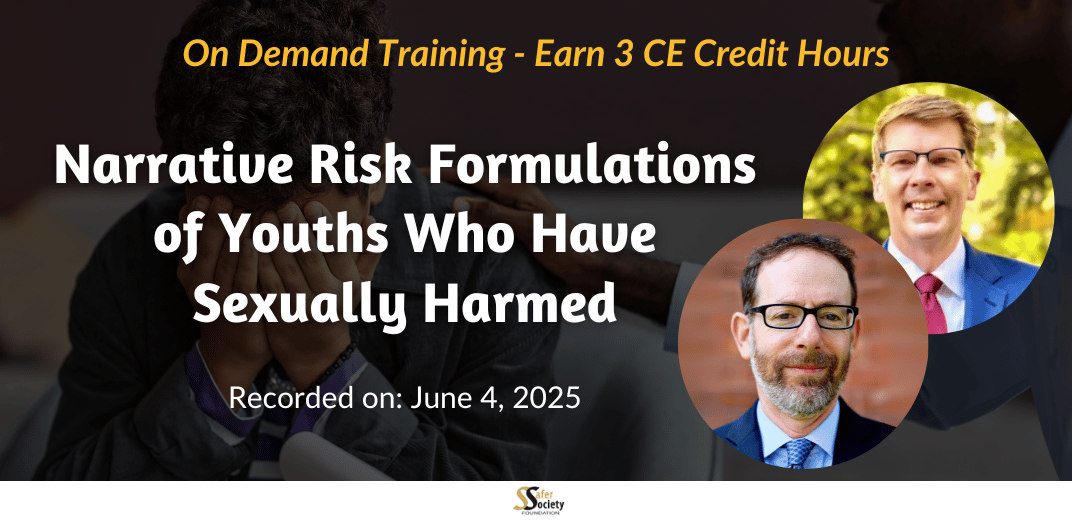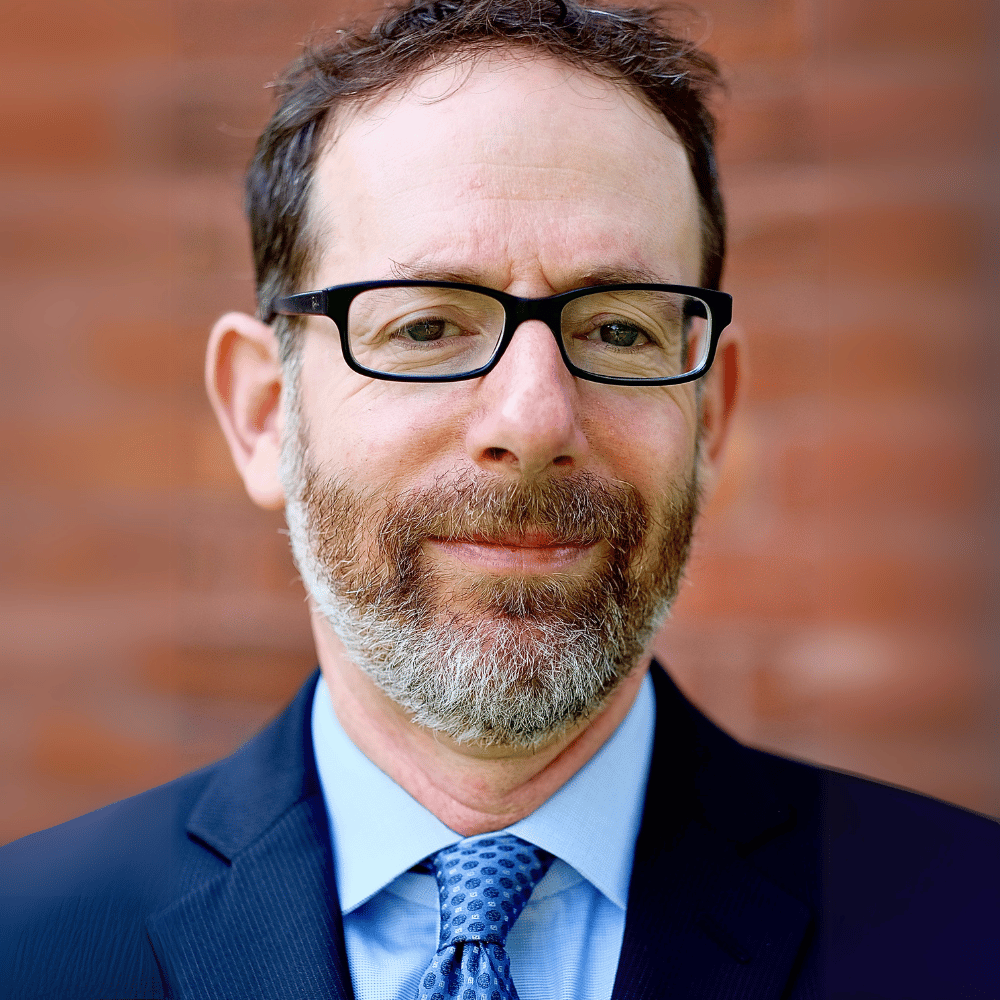
Narrative Risk Formulations of Youths Who Have Sexually Harmed
Already purchased an On Demand training?
Click here to access your Safer Society On-Demand Training Center account.
 Our understanding of the risks and needs of youths who have sexually harmed has advanced in recent years. Whereas assessments once looked only at those risk factors that signal dangerousness, they now employ a more comprehensive approach that takes into account:
Our understanding of the risks and needs of youths who have sexually harmed has advanced in recent years. Whereas assessments once looked only at those risk factors that signal dangerousness, they now employ a more comprehensive approach that takes into account:
- The youth’s protective factors
- The youth’s developmental status
- Multiple contexts in which the youth exists (e.g., home, school, and community environments)
Further, many authors have pointed out that identifying risk factors is not nearly as helpful as explaining how risk factors and protective factors have occurred and combined to make harmful behaviors more or less likely to occur. Over time, these risk and protective factors form a narrative—a story of how the youth came to behave the way they have.
In this training, Drs. Kruh and Cruise explain how the risk assessments of the past have evolved into comprehensive, structured methods for understanding and explaining a youth’s potential for harmful behavior. Narrative risk formulations are a key component of assessment and management in mental health and criminal justice settings. The presenters examine:
- A model for narrative risk formulation
- Essential knowledge about adolescent development and developmental psychopathology
- Current data on adolescent sexual re-offense rates
- How trauma plays a role in sexual abuse by adolescents
- “Scenario planning” to identify situations for potential abuse
1) Describe the recent evolution in conducting evaluations of youths with problematic sexual behavior.
2) Explain in broad terms the rationale for utilizing narrative formulations in risk assessment work.
3) Use a model for developing and integrating narrative formulations into evaluations of youths with problematic sexual behavior.
Audience
This training is for professionals working in mental health and criminal justice settings who deal with adolescents who have exhibited sexually abusive behaviors. This includes psychologists, social workers, clinical counselors, and criminal justice professionals.
Content Level
Disclosure
Continuing Education Approval
American Psychological Association (APA)
Safer Society Foundation, Inc. is approved by the American Psychological Association (APA) to sponsor continuing education for psychologists. Safer Society Foundation, Inc. maintains responsibility for this program and its content.
Who's Presenting

Ivan Kruh, PhD (He/Him/His)
Dr. Ivan Kruh is a forensic psychologist specializing in juvenile forensic mental health assessments. Dr. Kruh has been in private practice since 2012, focusing on juvenile forensic mental health assessments. He is currently a Partner and the Director of Juvenile Competency to Stand Trial Services at the National Youth Screening and Assessment Partners (NYSAP). Dr. Kruh has held several significant positions, including Director of Washington State’s Juvenile Forensic Services at Child Study & Treatment Center for ten years. He has also been a clinical assistant professor at the University of Washington, where he directed a post-doctoral training fellowship in juvenile forensic mental health.

Keith Cruise
Keith Cruise is a Professor and Director of Clinical Training in the Department of Psychology at Fordham University. He also serves as Co-Director of the Center for Trauma Recovery and Juvenile Justice. Dr. Cruise holds an adjunct position as Professor of Law at Fordham. His research focuses on clinical-forensic psychology, with particular emphasis on juvenile justice issues. Dr. Cruise is actively involved in professional organizations, serving on the leadership team of the National Partnership for Juvenile Services. He has contributed to the development of trauma-informed practices for juvenile justice practitioners and has conducted research on assessing trauma in juvenile justice settings.
